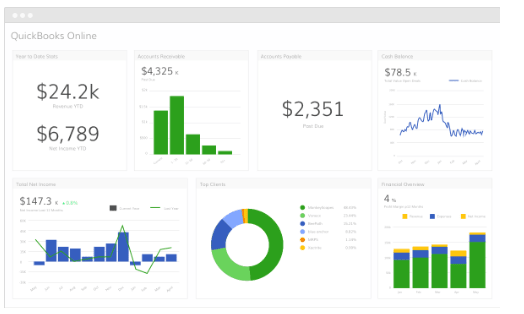
Property owners must understand Massachusetts home sale tax implications to know their tax duties. Residents who are 65 or older by Dec. 31, 2024, can receive a $700 exemption on top of the state’s personal exemptions. Contact your city or town to see if they participate.View tax tips for seniors and retirees in Massachusetts.

What is the deadline for filing Massachusetts state taxes in 2025?
- Whether you’re selling your home, stocks, or other investments, staying informed about capital gains tax is essential to maximizing your financial outcome.
- Estates of decedents who died during 2023 that have already paid Massachusetts estate tax may be entitled to a refund.
- You may convert the Massachusetts rental property into a principal residence for two years before selling it.
- This rate applies to gains from the sale of assets held for more than one year.
- The state also provides deductions for reinvesting capital gains into qualified investments, such as small businesses or designated economic opportunity areas, encouraging entrepreneurship and economic development.
- With recent changes in tax laws, including reductions in the short-term capital gains tax rate and the introduction of a high-income surtax, staying informed is more important than ever.
However, if the property was rented out, careful calculations are necessary to determine the taxable portion of gains related to non-qualified use. When selling your main home, there’s a special tax break that shields up to $250,000 of profits for single filers and $500,000 for married couples filing jointly. Even if you do not report the sale of your Massachusetts home to the IRS, there are real estate transactions that can trigger taxes such as lien settlement or mortgage payoff. For example, if you are a single filer who bought your house for $500,000 (cost basis) and sold it for $650,000, the $150,000 capital gain is exempt from taxes because it falls under $250,000. In Massachusetts, capital gains are subject to both federal and state taxes.
This lesser-known tax strategy could help to reduce capital gains on your home sale
It’s important for taxpayers in Massachusetts to be aware of these distinctions and tax rates when considering the tax implications of their capital gains transactions. Long-term capital gains apply to assets held for more than one year and are taxed at 5%, consistent with the state’s standard income tax rate. To qualify, taxpayers need to maintain accurate records of purchase and sale dates to verify the holding period. First, the prior year short-term unused losses are offset against short-term capital gain, resulting in net short-term capital gain of $3,000. As of May 1, 2002, the sum of the long-term capital losses under the prior law becomes a net 5.3% long-term capital loss of $8,000, of which $3,000 is used to offset net short-term capital gain.
Do You Pay Capital Gains if You Lose Money on a Home Sale?

Exceeding the $250,000 and $500,000 exclusions is “becoming more common,” said Tommy Lucas, a certified financial planner and enrolled agent at Moisand Fitzgerald Tamayo in Orlando, Florida. Those percentages were even higher in high-cost states like Colorado, Massachusetts, New Jersey, New York and and Washington, according to the CoreLogic report. Meanwhile, revocable trusts that passed certain criteria can be disregarded.
- If you do not qualify for the 121 primary residence exclusion or you still owe taxes after some exemptions, you can still salvage a partial home sales tax exclusion.
- This article provides an in-depth look at the capital gains tax in Massachusetts, recent legislative changes and key strategies investors should be aware of in 2024.
- The real estate market here shifts with the seasons, economic trends, and even local policies.
- By understanding and considering these rules, you can save on Massachusetts capital gains taxes and avoid a number of possibly expensive mistakes.
- It’s important to note that Massachusetts conforms to the federal tax treatment of capital gains, so any changes at the federal level will also impact how capital gains are taxed in the state.
More Resources For Massachusetts House Sellers

How capital gains are taxed, income statement the laws governing these taxes and strategies to minimize tax liability would be essential for effective financial planning. This article provides an in-depth look at the capital gains tax in Massachusetts, recent legislative changes and key strategies investors should be aware of in 2024. For instance, Massachusetts allows a limited exclusion for gains from selling a primary residence, provided ownership and use conditions are met.
- You may be eligible for a full or partial exemption if you meet specific requirements, such as living in the home for at least two of the five years preceding the sale.
- Certain short-term capital gains are taxed at a rate of 8.5% and long-term capital gains from the sale of collectibles are taxed at a rate of 12%.
- Meanwhile, revocable trusts that passed certain criteria can be disregarded.
- A short-term capital gain is a profit from the sale of an asset you’ve owned for one year or less.
- This strategy is beneficial if you plan to buy another home in the state.
- Additionally, a tax professional can ensure that the capital gains are reported correctly on both federal and state tax returns to avoid any potential penalties or audits from tax authorities.

Additionally, when you file an amended return or an abatement application to reduce the amount of tax due, and you previously massachusetts income tax paid more than what is now shown as due, an overpayment may be generated. Personal income tax deductions decrease your taxable income, which means you owe less taxes. Sellers must plan carefully for taxes on future home sales to comply with Massachusetts rules on real estate profits.
Massachusetts State Taxes: What You’ll Pay in 2025
Considering the property sale’s particulars, you must accurately calculate these expenditures to ensure that everyone is financially prepared. Both buyers and sellers in Massachusetts need to know about the state’s real estate taxes. Depending on location and value, you pay this tax when you sell a house. You should also include property sale taxes in your budget because they are part of the closing costs. Selling your primary residence in Massachusetts can offer significant tax benefits. If you qualify for a primary residence sale tax Massachusetts exemption, you may exclude up to $250,000 of the gain if filing singly or $500,000 if married, provided you pass the use and ownership tests.
- Also, if you do this now, you will lose your primary residency status on your first home.
- Choose us for a convenient and stress-free home-selling experience.
- Check the Massachusetts Form 1-NR/PY to learn more.AARP’s Retirement Calculator can help you determine if you are saving enough to retire when — and how — you want.
- For instance, selling a losing asset to counterbalance gains reduces taxable income.
- Those percentages were even higher in high-cost states like Colorado, Massachusetts, New Jersey, New York and and Washington, according to the CoreLogic report.
Real estate transactions are a common source of capital gains and come with unique considerations in Massachusetts. The primary residence exclusion is a significant tax benefit, but it’s essential to plan accordingly to maximize this exclusion. Donating appreciated assets to charity can also reduce your capital gains tax. You can deduct the asset’s fair market value at the time of donation, and you won’t have to pay capital gains tax on the appreciation. Formerly, if the value of a https://www.bookstime.com/ decedent’s estate did not exceed $1 million, no tax was owed; however, if the value of the decedent’s estate exceeded $1 million, the entire value of the estate was subject to tax.